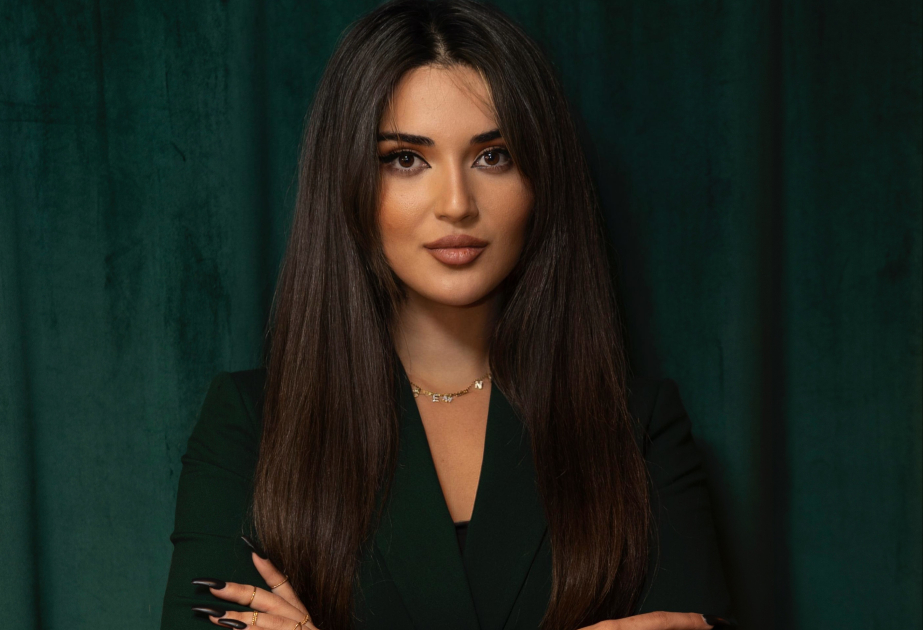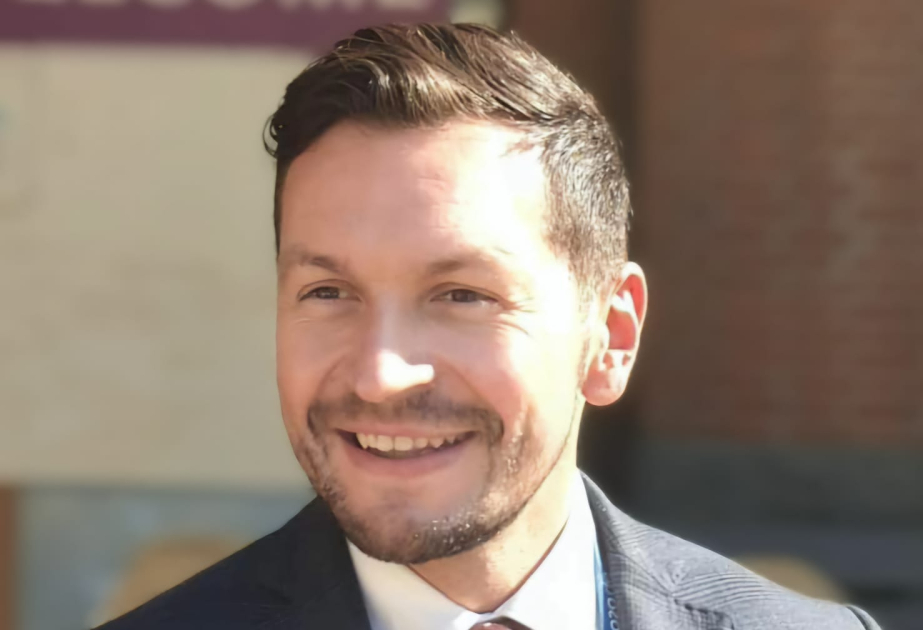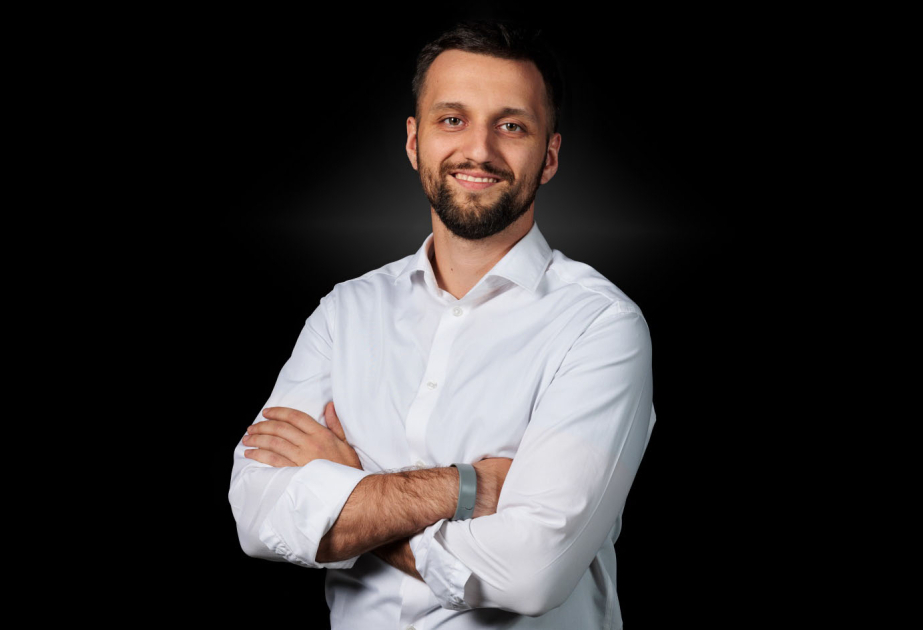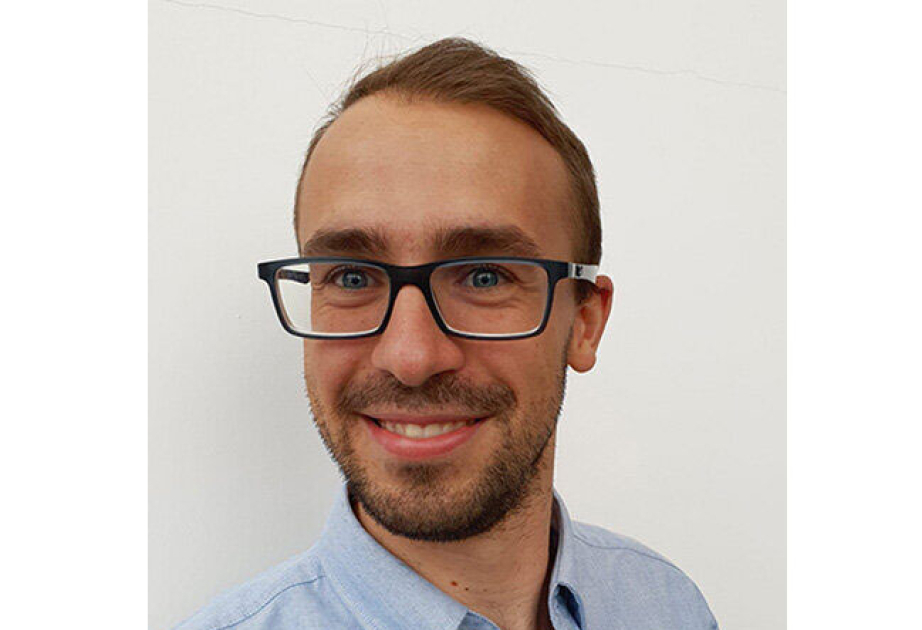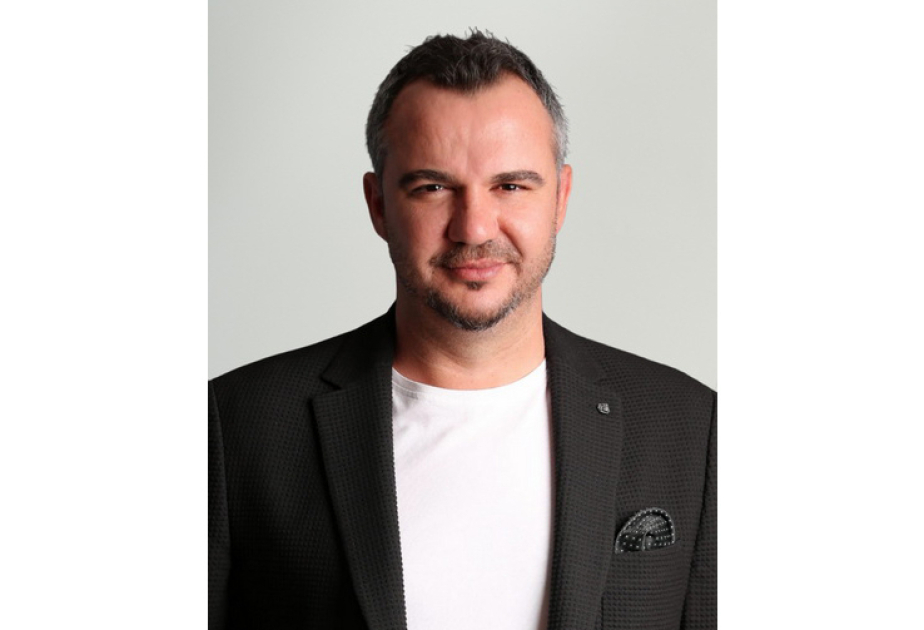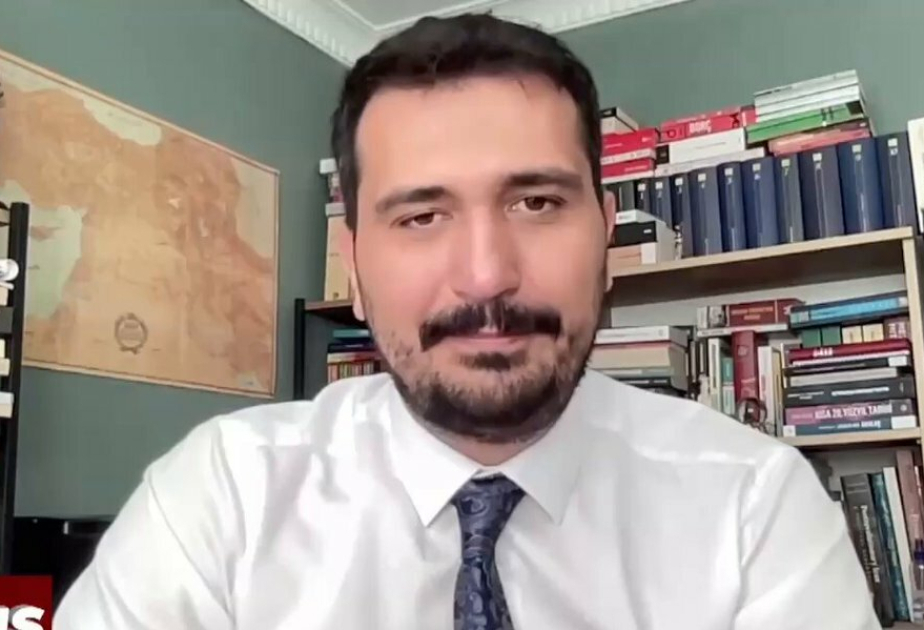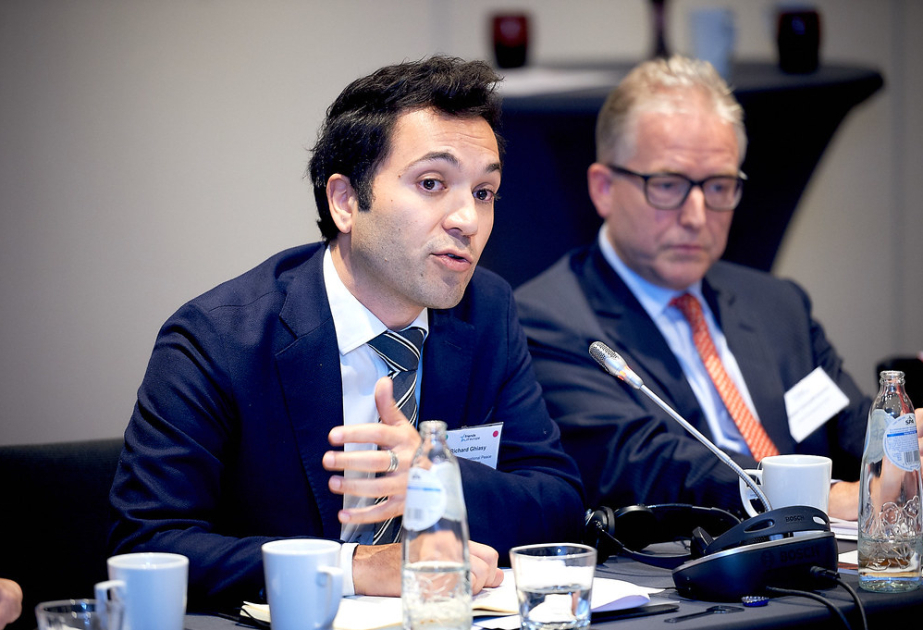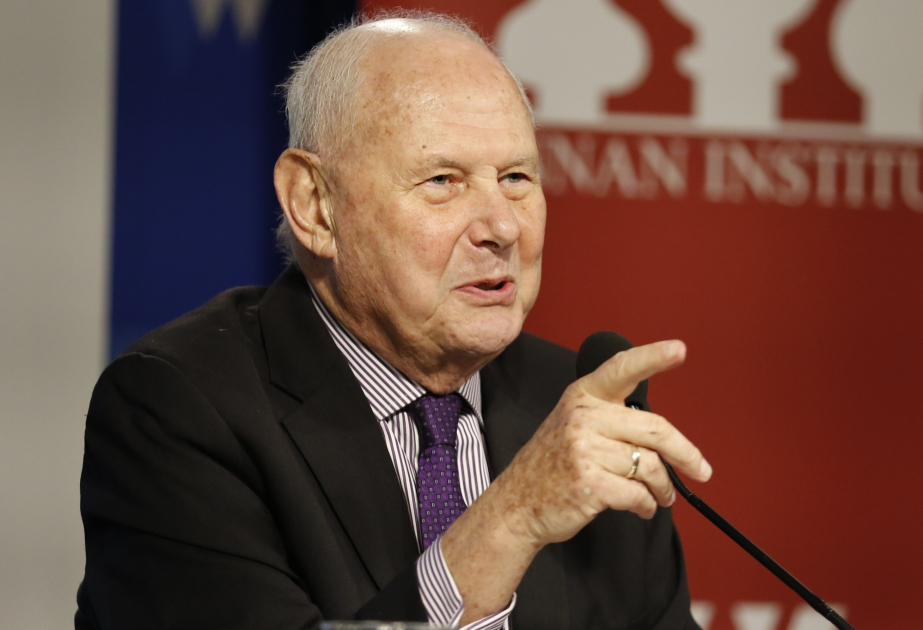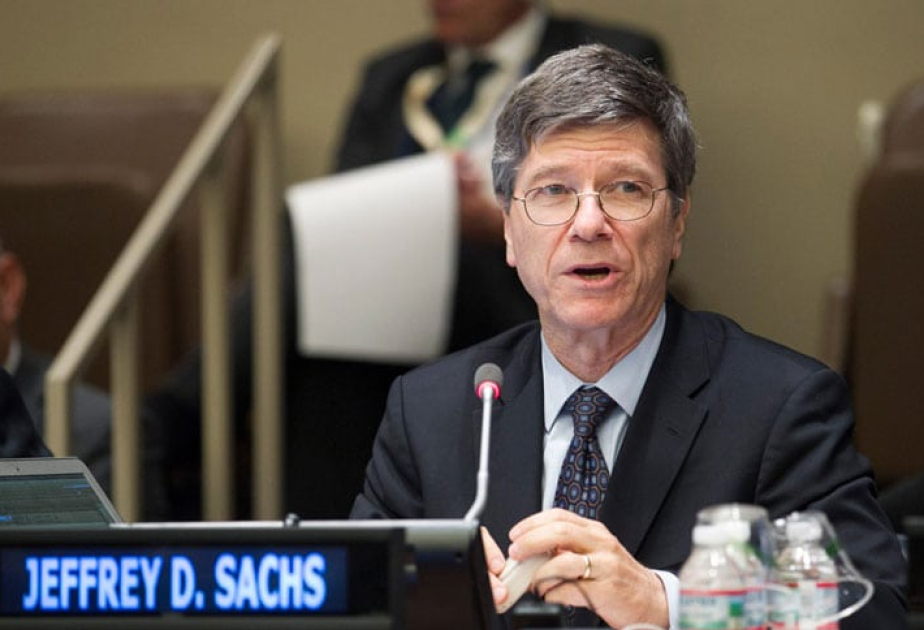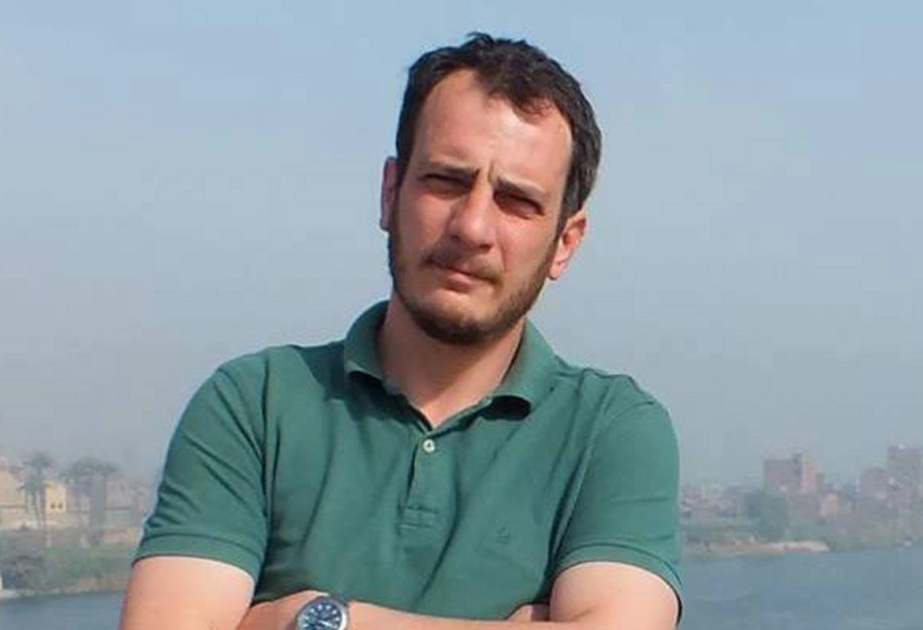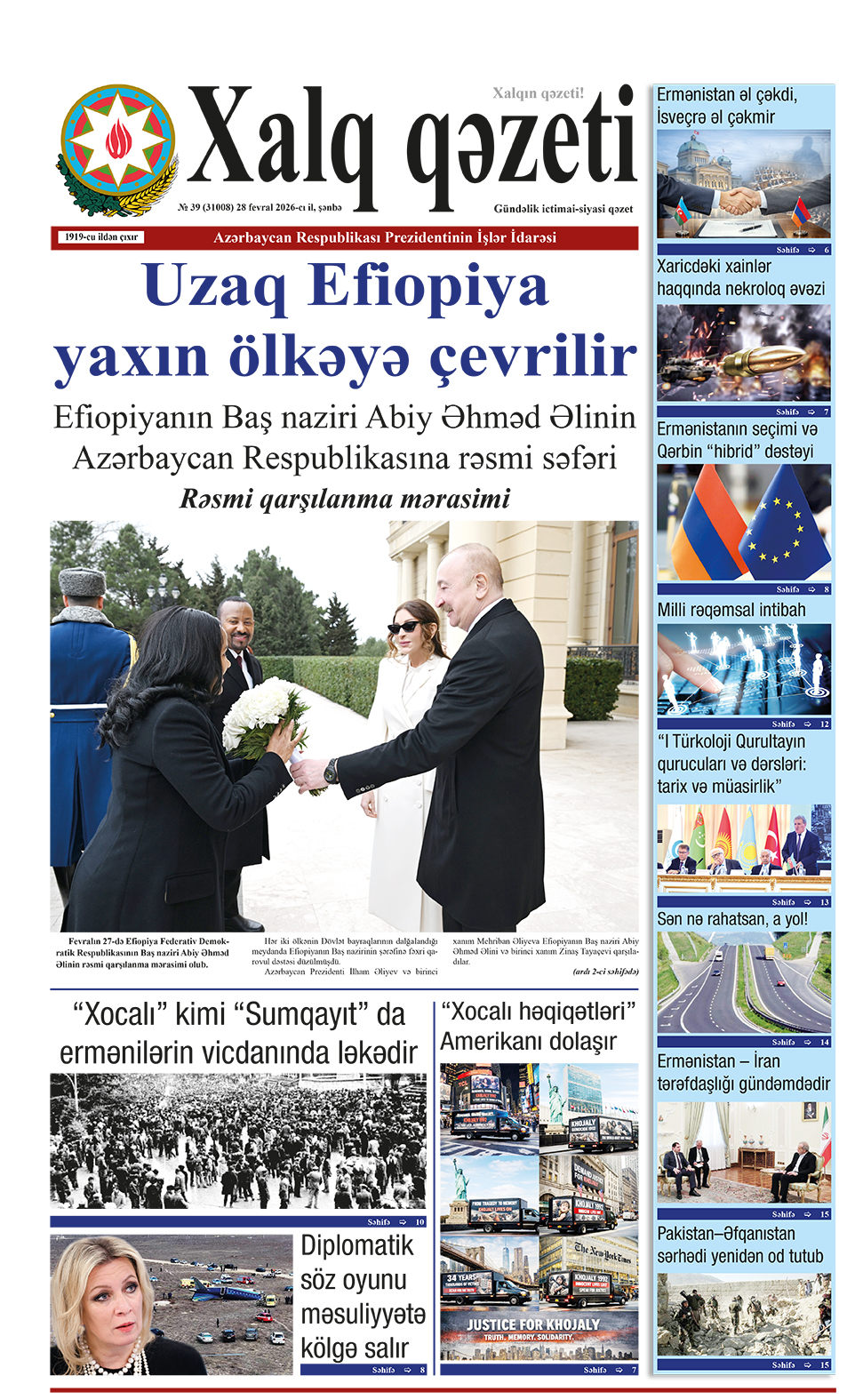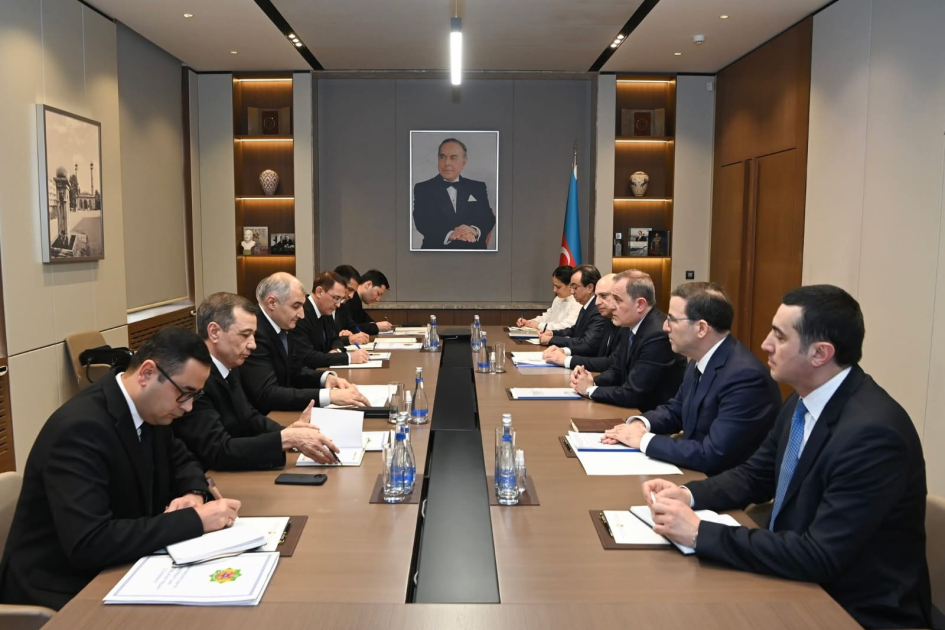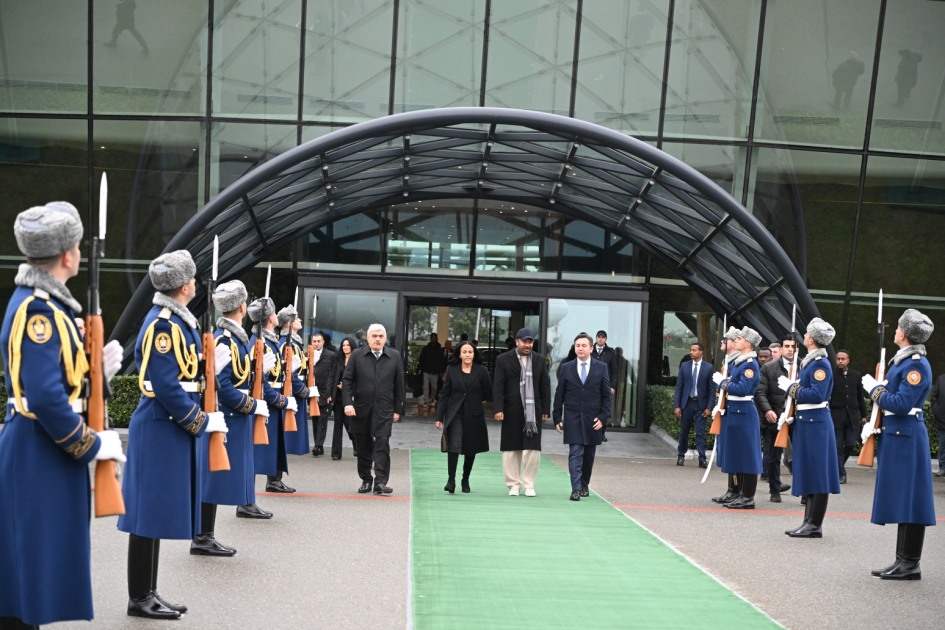Around the world, the names of young and talented Azerbaijanis are being heard more and more loudly—individuals who, living abroad, become not only a source of inspiration but also an example of professionalism and a sincere desire to make the world a better place. Narmina Abdolova is one of those individuals. Her story is one of growing from a childhood interest in justice to conscious leadership in sustainable innovation and women’s entrepreneurship. Today, Narmina heads the company Eco8.
In an interview with AZERTAC, she shared her thoughts on her personal mission and the importance of staying connected to one’s roots, no matter where you are.
– Narmina, you are the founder and CEO of the Swedish innovation company Eco8. Could you tell us more about the company's work?
– Eco8 offers modern, eco-friendly packaging solutions that are completely free from microplastics and fossil-based raw materials. These innovative packages, made from renewable sources such as agricultural waste, inedible plants, and starch, reduce carbon emissions by up to 92 percent compared to traditional plastic, while maintaining strength and durability. It’s a product that not only protects the environment but also contributes to women’s health and overall well-being. Our packaging decomposes into 99.8 percent harmless components through composting within 180 days. Eco8’s packaging and disposable products are certified and tested by TUV Austria, an organization that oversees product safety, and meet EU standards.
Packaging without fossil components is a far more important issue than many realize. Producing traditional plastic requires nearly twice as much oil as the weight of the product itself, and its harm to humans, animals, and ecosystems is evident. It’s also a matter of using natural resources responsibly and wisely. When sustainable and innovative alternatives like Eco8 solutions exist, we are obliged to make conscious choices. Ultimately, it’s about creating a future in which both people and the planet can thrive.
I’d also like to mention that my work was recently recognized at the annual Women in Business (WiB) awards in Stockholm, where I was named a finalist.
– You’re also a partnerships manager at Plaza Kvinna magazine (kvinna means “woman” in Swedish). You just mentioned being a Women in Business finalist, and in talking about packaging, you highlighted women's health. There’s definitely a feminist spirit here…
– Yes, that’s a good observation. While studying political science and public administration at Linköping University, I also worked at Nordea Bank, where I gained experience in economics, savings, and property law. It was there that I became especially aware of the economic inequality between men and women—from pay gaps to unequal access to property, inheritance, career opportunities, and legal protection in divorce.
After returning to Stockholm following my studies, I delved deeper into promoting women’s rights and empowerment—both in public life and in the professional sphere. I was inspired by women who boldly pursued their dreams despite obstacles. I realized I wanted to contribute to those positive changes.
That’s how the podcast Mäktiga Kvinnor ("Powerful Women") was born. I interviewed outstanding women of both Swedish and foreign backgrounds—living in Sweden and abroad: entrepreneurs, politicians, CEOs, and activists. They shared their experiences on the road to success.
The number of listeners far exceeded my expectations, and within just a few months, the podcast was in Sweden’s top 10. Over time, the project grew into something more than just a media platform. We began organizing events for women where they could hear inspiring lectures. I launched a mentorship program to connect mentors and mentees—building bridges between generations and cultures. In parallel, I worked with well-known companies as a consultant and creative strategist, helping them build effective communication with female audiences, especially through strategic marketing and brand development—particularly in male-dominated industries.
My work was also recognized internationally. I had the honor of representing Sweden at Expo 2020 in Dubai—the World Expo held under the theme Connecting Minds, Creating the Future, where countries from around the globe shared innovations, cultures, and approaches to global challenges.
It was there, at Expo, that I truly grasped the scale of the environmental challenges humanity faces. It was also there that my interest in sustainability deepened and the idea for Eco8 was born. I realized that real change requires not only innovation but also courage. And sustainable packaging solutions can be one of the key tools to reduce environmental harm.
– Since we’re back on the topic of Eco8, may I ask how the company is doing? Are you managing to get your products to market?
– Currently, Eco8 operates on a B2B (business-to-business) model, supplying eco-friendly packaging to entrepreneurs and companies. Our partners include online stores like Matsmart, which specializes in selling discounted food to reduce food waste, and Parfym, which offers perfumes and cosmetics.
Bringing a new product to market isn’t just about sales—it’s primarily about raising awareness. In our case, it’s about drawing attention to a reality many people don’t yet consider. Plastic literally surrounds us. Just take a look around—you’ll likely spot at least ten items containing plastic.
Modern research shows that the average person ingests an amount of microplastics equivalent to one credit card per day. This is no longer just an environmental threat—it’s a public health crisis. Scientists have linked microplastics to the development of a number of serious illnesses, including cancer.
Starting a company from scratch is far less glamorous than it might seem from the outside. Behind the scenes lies a daily reality filled with constant challenges, fast decisions, and the need to navigate difficult situations. Being an entrepreneur means being able to handle crises: finding warehouse space at the last minute when deliveries fall through, understanding the client's needs precisely, and overseeing the entire logistics chain—from concept to final product. In the early stages, you often don’t have enough resources to hire a team, so you have to juggle multiple roles and do everything yourself.
- How difficult is it to achieve success in Sweden without being ethnically Swedish? How do you think this affects career opportunities in Sweden?
People with foreign roots often have to work twice as hard. Why? At first glance, the reason seems simple, but in reality, it runs much deeper. When there are hardly any people with a similar background among decision-makers, you are less likely to be seen as a natural candidate for significant roles.
Many face subtle, and sometimes even outright, prejudices regarding their professionalism, cultural roots, or appearance. This forces a person to prove their worth over and over again.
Career opportunities often arise informally — let's say, through connections, to which women with foreign roots may not have access. And perhaps the hardest part is that they often have to be more than just good. They need to be flawless in order to be taken seriously.
- What is a typical day like for the head of a company?
In my free time, I love to read, especially books on philosophy, spiritual practices, and psychology. Psychology has always held a special place in my heart. In the future, I would like to study it more deeply, possibly at a university. I am truly fascinated by the complexity of the human mind, behavior, and emotions.
In addition to my interest in knowledge, I also have a creative and active side. Over the years, I have tried many things — from bachata and boxing to painting. It is important for me to develop not only mentally but also physically. My hobbies are a natural continuation of my desire to experience life in all its diversity.
What does Azerbaijan mean to you?
Growing up and living far from my historical homeland means constantly searching for the feeling of “home.” This feeling is familiar to many people with dual identities: it’s as if you are both at home and a guest at the same time. Although my family and I moved to Sweden when I was eight years old, and I have spent my entire conscious life here, the internal longing for my homeland gradually turned into a genuine interest in Azerbaijani culture — its poetry, music, and traditions. I was particularly drawn to mugham — its depth, sound, and soul. I truly admire the works of Imadeddin Nasimi and Alim Gasimov. I know many Azerbaijani songs by heart, which I often hum. Although I may not have the best voice in the world (laughs), I sing with all my heart. And I also love to tap the traditional Azerbaijani rhythm on the table with my hands — that’s something my father taught me.
In our home, language has always had a special meaning. My younger sister and I had no choice — we spoke both Azerbaijani and Russian from childhood, and over time we also became fluent in Swedish and English. As a family, we always celebrate our holidays — Novruz and Ramadan Bayram. And with each passing year, the desire to learn more about my roots became more natural, almost an inseparable part of me.
But the search for one’s origins is not just about language or traditions. It’s also about the inner connection to the melodies of childhood, to family jokes, to the games we played — backgammon, lotto. To those subtle, invisible things that make culture truly alive. I sincerely believe that our genes hold memories, and sometimes they themselves show us the way back home.


